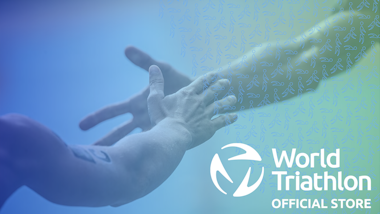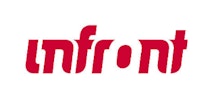Behind the Scenes at ‘Say NO! to Doping’
21 May, 2011 | español
They may have different training regimens and competition schedules but the ITU’s top stars all have one fight in common – Say NO! To Doping.
The campaign is a World Anti-Doping Agency (WADA) initiative that allows athletes to publicly show their support for anti-doping. Now ITU champions have joined in to support triathlon’s Say NO! to Doping campaign, that will officially be launched before the Dextro Energy Triathlon ITU World Championship Series London race in August.
In Sydney just prior to the opening round of the 2011 Dextro Energy Triathlon ITU World Championship Series, a number of marquee names joined ITU Anti-doping Director Leslie Buchanan to film a promo spot and share their views on the fight against doping. Athletes who attended included Javier Gomez, Emma Moffatt, Paula Findlay, Alistair Brownlee, Kris Gemmell, Laurent Vidal, Helen Jenkins, Kate Roberts, Andrea Hewitt, Jessica Harrison, Bevan Docherty, Mariko Adachi and Henrik DeVilliers.
WADA’s Say NO! to Doping campaign was first launched in partnership with the International Ice Hockey Federation (IIHF) and saw players complete the warm-up with green pucks.
The colour green was chosen because it evokes, health, nature and in many sports, the field of play. For its own campaign the ITU has picked shoelaces, swim caps and lunch bags to carry the message, coloured a bright electric green.
It’s another step in triathlon’s fight against doping, after WADA confirmed earlier this year the ITU was in full compliance with its world anti-doping code.
More details about the athletes’ initiative will be available in August, but before then, here is a sneak peek at why some of the world’s leading triathletes are joining triathlon’s Say NO! to Doping campaign:
Paula Findlay on why she competes cleanly: “That is how sport is intended to be, drugs are not supposed to be a part of any sport, so training and racing it’s supposed to be the best man wins, the person who trains the hardest, the person who is most committed, the person who pushes the hardest during the race. So I think that should be the indicator of who is the best, not the person who is cheating or going behind the rules.”
Javier Gomez on why he believes anti-doping is important: “I learned the way my coach, my family taught me how to do things, that if you want something you have to work hard for it. You have to train hard, so it’s not in my mind that kind of things, I know that you can be a world champion without drugs.”
Jessica Harrison on what keeps her clean: “If I want to be happy with what I’m doing and I want to come across the line and be pleased with my result, I can’t think that something or somebody else helped me do that, whether it’s cutting a course or using illicit substances. I cannot comprehend anybody else being happy or feeling good about themselves while cheating to get that result. It’s fraud.”
Leslie Buchanan, ITU Director of Anti-Doping, said that this was another important step forward for triathlon.
“Triathlon has recently taken some big steps to ensure that our anti-doping process is world class, which has now been officially confirmed as complying with WADA’s world code, so this is just the next step in what we believe is a comprehensive and robust anti-doping programme in international sport,” said Buchanan.
“In particular, it’s a great opportunity for the athletes to have their say and hopefully through doing this, they can really influence the next generation of ITU stars and encourage our sport to keep saying no to doping not just now, but in the future.”
The ITU Anti-Doping department was established with the goal of committing substantial time and resources to curb doping in triathlon. This year’s anti-doping protocols include: intelligent testing for ITU events and athletes that is also more efficient, a commitment from National Federations to test and report their testing, and a comprehensive education programme. That includes actively engaging member federations through regular anti-doping content, helping everyone involved in triathlon understand the importance of a clean sport for not only participants’ health and fair results, but for the sport’s legacy.
Stay tuned to triathlon.org for the full video and more from the Say NO! to Doping campaign.
Click here for more on ITU Anti-Doping
Click here for more on WADA
All photos courtesy Paula Kim / ITU
tags
anti-doping






